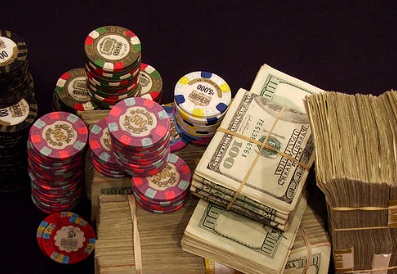Bankroll and its management in poker
Many novice players, who have not yet mastered the multifaceted variety of poker terms, ask more experienced fans of the game what a bankroll is in poker. This word refers to the limit of funds that each participant in a competition is prepared to lose as a result of an unsuccessful turn of events.
The basics of bankroll management for poker players.
The best bankroll management strategy

In order not to lose their entire bankroll at once, experienced poker players plan their spending very carefully in case of a long streak of bad luck. This allows them to minimize their financial losses and significantly mitigate the unpleasant emotional feelings that come with them.
It is precisely in order to save money from their bankroll that experienced poker players are in no hurry to make large bets. It is much more profitable to follow a strategy of gradually increasing your bankroll with the money you win. Upon achieving a certain financial result, preferably as substantial as possible, a poker player can finally afford to raise their bets and thus create the possibility of a large one-time win.
Classification of bankrolls
Existing types of bankrolls can be divided into several main categories:
Extremely small bankrolls created by novice players from their hard-earned savings;
Regular bankrolls that are constantly available to experienced players and range from two hundred to five hundred dollars per playing day;
A large bankroll, created by professional poker players from the money they have won, allowing them to participate in serious sports and rating tournaments;
A championship bankroll, controlled by experienced winners of famous world competitions and giving them the opportunity to hit the big jackpot that many poker enthusiasts dream of.
The law of harmonious balance
Without exception, all the principles of creating a bankroll boil down to the famous concept of ancient Greek philosophy, which implies a point of ideal equilibrium located somewhere between two extreme states of the system. This is the rule of the golden mean, which allows one to avoid the extremes of extravagance and greed. Constantly feeling the psychological and financial limits of their capabilities, experienced players invariably choose a bankroll management strategy in poker that simultaneously creates opportunities for systematic enrichment and prevents the extremely distressing depletion of their personal gaming bank.
Despite all its genius and simplicity, the golden mean rule actively developed by Aristotle does not immediately gain value in the eyes of a poker player. Only after a series of shocks caused by large losses and several random spectacular wins that are no less harmful to the psyche does the player begin to understand that extremes are indeed harmful.
Smooth play without strong emotions
The only fruitful, far-sighted, and virtually foolproof strategy is to soberly weigh the risks and chances. A bankroll calculated on the basis of this healthy approach will not disappear after a few unsuccessful rounds and, at the same time, will not cause strong destructive emotions that overwhelm you when you lose a big pot.
Only a player who plays without emotional swings is capable of significantly increasing their bankroll in the near future from literally pennies to impressive amounts measured in five or six zeros, allowing them to join the ranks of the few widely recognized masters.
It should be noted that poker requires not only mental abilities but also character. And only competent bankroll management will allow you to confidently win in both of these difficult battles.